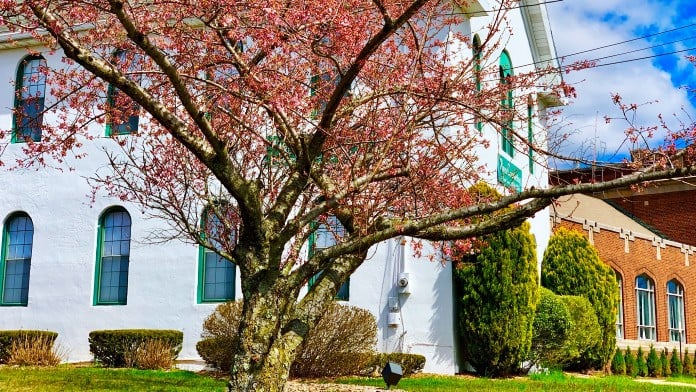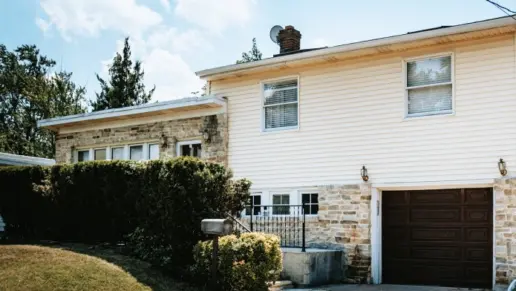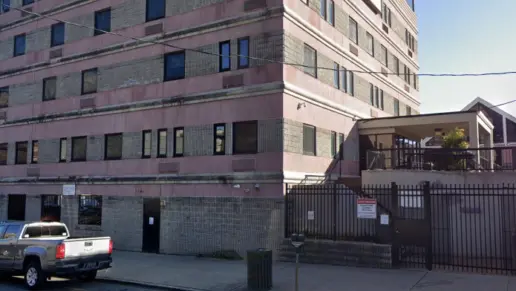About Counseling and Family Services
Counseling and Family Services provides quality and low cost outpatient counseling services to help adults recover from substance misuse. This facility serves adults in Wayne, New Jersey, and neighboring communities in Passaic County. Their clinical professionals may help you handle co-occurring conditions as well. This is when someone simultaneously struggles with mental health issues and addictive behaviors.
They also offer educational and prevention services. Specialized programs are available for job seeking women or those needing emotional support after divorce. This focuses on building vocational skills that streamline reentry into the workforce and career advancement.
Their outpatient counseling for substance use begins with an intake assessment to identify needs. This helps their clinical professionals create a personalized care plan that addresses those needs.
Their therapeutic support for all stages of recovery is provided primarily in a group format. This makes sense since group therapy offers immense benefits that support lasting recovery. It provides a safe space to connect and share experiences with others facing similar challenges. This ensures you don’t feel alone in recovery. Sharing experiences with others grants you new perspectives and coping tools you might not get on your own.
The group also helps boost accountability because you’re all in it together. This can keep you motivated. Plus, hearing others’ stories can be inspiring and encourage you to keep pushing forward. In a way, it builds a support network that’s there for you even outside the sessions.
You may also receive individual therapy if you require one on one support to work through specific issues at your own pace. This can help you focus on personal goals and dig into what’s driving your recovery.
They also offer family counseling. This focuses on resolving conflict, mending relationships and improving communication with the people you love. It’s an effective way to bring the family together which can strengthen your support system. This promotes a sober lifestyle and prevents relapse.
The facility also offers substance use aftercare services involving ongoing support and check-ins to help you stay on track. These may include regular counseling sessions, support groups and relapse prevention planning tailored to keep you moving forward. Additional services include DUI recovery programs focusing on education to learn the dangers of substance misuse and prevent reoffending.
The facility accepts multiple insurances including New Jersey family care. Sliding scale fee options are available as well. This lets you pay for counseling based on your income or ability to pay.
Latest Reviews
Rehab Score
Gallery

Location
Other Forms of Payment
Medicaid is a state based program that helps lower-income individuals and families pay for healthcare. Medicaid covers addiction treatment so those enrolled can use their coverage to pay for rehab. When a program accepts Medicaid the client often pays very little or nothing out of their own pocket.
Private insurance refers to any kind of healthcare coverage that isn't from the state or federal government. This includes individual and family plans offered by an employer or purchased from the Insurance Marketplace. Every plan will have different requirements and out of pocket costs so be sure to get the full details before you start treatment.
Self-pay involves paying for treatment out of your own pocket. You can use savings or credit, get a personal loan, or receive help from family and friends to fund your treatment. If you don't have insurance or your insurance plan doesn't cover a specific program, self-pay can help ensure you still get the care you need.
Financial aid can take many forms. Centers may have grants or scholarships available to clients who meet eligibility requirements. Programs that receive SAMHSA grants may have financial aid available for those who need treatment as well. Grants and scholarships can help you pai for treatment without having to repay.
Sliding scale payments are based on a client's income and family size. The goal is to make treatment affordable to everyone. By taking these factors into account, addiction recovery care providers help ensure that your treatment does not become a financial burden to you or your family, eliminating one barrier to care.
Addiction Treatments
Levels of Care
Treatments
The goal of treatment for alcoholism is abstinence. Those with poor social support, poor motivation, or psychiatric disorders tend to relapse within a few years of treatment. For these people, success is measured by longer periods of abstinence, reduced use of alcohol, better health, and improved social functioning. Recovery and Maintenance are usually based on 12 step programs and AA meetings.
Drug rehab in New Jersey is the process of addressing the complex issues involved with addiction. Challenges are identified and addressed through individual and group counseling. Participants learn how to manage these issues without the use of substances.
Many of those suffering from addiction also suffer from mental or emotional illnesses like schizophrenia, bipolar disorder, depression, or anxiety disorders. Rehab and other substance abuse facilities treating those with a dual diagnosis or co-occurring disorder administer psychiatric treatment to address the person's mental health issue in addition to drug and alcohol rehabilitation.
A combined mental health and substance abuse rehab has the staff and resources available to handle individuals with both mental health and substance abuse issues. It can be challenging to determine where a specific symptom stems from (a mental health issue or an issue related to substance abuse), so mental health and substance abuse professionals are helpful in detangling symptoms and keeping treatment on track.
Opioid rehabs specialize in supporting those recovering from opioid addiction. They treat those suffering from addiction to illegal opioids like heroin, as well as prescription drugs like oxycodone. These centers typically combine both physical as well as mental and emotional support to help stop addiction. Physical support often includes medical detox and subsequent medical support (including medication), and mental support includes in-depth therapy to address the underlying causes of addiction.
Programs


Clinical Services
Cognitive Behavioral Therapy (CBT) is a therapy modality that focuses on the relationship between one's thoughts, feelings, and behaviors. It is used to establish and allow for healthy responses to thoughts and feelings (instead of unhealthy responses, like using drugs or alcohol). CBT has been proven effective for recovering addicts of all kinds, and is used to strengthen a patient's own self-awareness and ability to self-regulate. CBT allows individuals to monitor their own emotional state, become more adept at communicating with others, and manage stress without needing to engage in substance abuse.
Whether a marriage or other committed relationship, an intimate partnership is one of the most important aspects of a person's life. Drug and alcohol addiction affects both members of a couple in deep and meaningful ways, as does rehab and recovery. Couples therapy and other couples-focused treatment programs are significant parts of exploring triggers of addiction, as well as learning how to build healthy patterns to support ongoing sobriety.
Research clearly demonstrates that recovery is far more successful and sustainable when loved ones like family members participate in rehab and substance abuse treatment. Genetic factors may be at play when it comes to drug and alcohol addiction, as well as mental health issues. Family dynamics often play a critical role in addiction triggers, and if properly educated, family members can be a strong source of support when it comes to rehabilitation.
Group therapy is any therapeutic work that happens in a group (not one-on-one). There are a number of different group therapy modalities, including support groups, experiential therapy, psycho-education, and more. Group therapy involves treatment as well as processing interaction between group members.
In individual therapy, a patient meets one-on-one with a trained psychologist or counselor. Therapy is a pivotal part of effective substance abuse treatment, as it often covers root causes of addiction, including challenges faced by the patient in their social, family, and work/school life.
Contact Information
1022 Hamburg Turnpike
Wayne, NJ 07470


